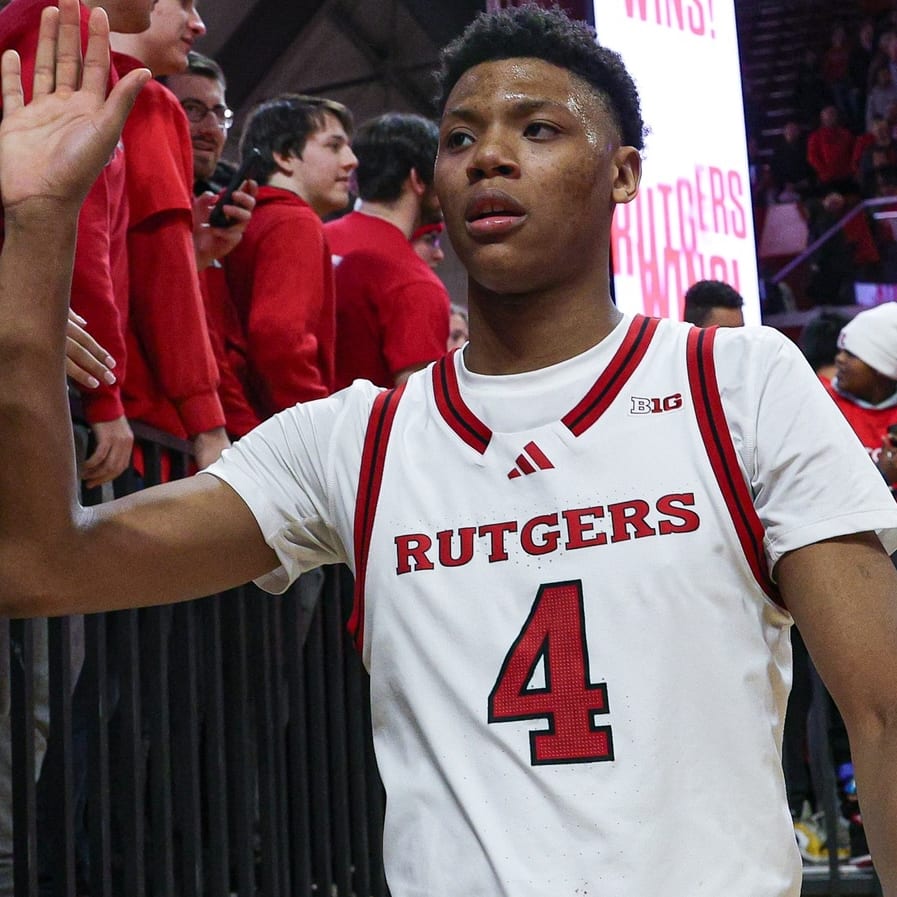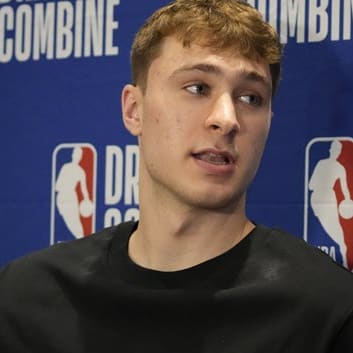This article is part of our The Prospect Post series.
1. D'Angelo Russell
2. Karl-Anthony Towns
3. Justise Winslow
4. Jahlil Okafor
5. Emmanuel Mudiay
6. Kristaps Porzingis
7. Frank Kaminsky
8. Stanley Johnson
9. Devin Booker
10. Mario Hezonja
Of the players on that list, Russell, Winslow, Kaminsky and Booker were the four that I was highest on, relative to other outlets and where they were drafted. These four were "my guys" from that class. The first quarter of the NBA season is in the books, so here are their (and in turn my) quarterly report cards:
D'Angelo Russell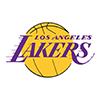
As much as head coach Byron Scott deserves to be criticized for many things he has done and said this year, he is still obviously in a bit of a tough spot with this team. On the one hand, he has to play Kobe Bryant for reasons that have nothing to do with winning basketball games or developing players. At the same time he is tasked with the development of players like Russell and Julius Randle, who are the only two players currently on the roster who are safe bets to be starting on the Lakers' next iteration of a contender.
Russell has come off the bench in both of the Lakers' last two games, and on Wednesday he scored 23 points with one rebound and three assists in 32 minutes, though he needed 20 shots to get those points. This seems ludicrous on the
1. D'Angelo Russell
2. Karl-Anthony Towns
3. Justise Winslow
4. Jahlil Okafor
5. Emmanuel Mudiay
6. Kristaps Porzingis
7. Frank Kaminsky
8. Stanley Johnson
9. Devin Booker
10. Mario Hezonja
Of the players on that list, Russell, Winslow, Kaminsky and Booker were the four that I was highest on, relative to other outlets and where they were drafted. These four were "my guys" from that class. The first quarter of the NBA season is in the books, so here are their (and in turn my) quarterly report cards:
D'Angelo Russell
As much as head coach Byron Scott deserves to be criticized for many things he has done and said this year, he is still obviously in a bit of a tough spot with this team. On the one hand, he has to play Kobe Bryant for reasons that have nothing to do with winning basketball games or developing players. At the same time he is tasked with the development of players like Russell and Julius Randle, who are the only two players currently on the roster who are safe bets to be starting on the Lakers' next iteration of a contender.
Russell has come off the bench in both of the Lakers' last two games, and on Wednesday he scored 23 points with one rebound and three assists in 32 minutes, though he needed 20 shots to get those points. This seems ludicrous on the surface, and there are some reasons it is a terrible idea, which we will get to in a minute. However, getting Russell on the court for essentially every minute Bryant is not on the court makes a lot of sense, in theory. When Bryant is on the court, the Lakers run a bastardized form of basketball that is unrecognizable to anything else one would find in the league today.
The big drawback here is that when Russell is on the court with the second unit he has (so far) looked to score rather than distribute. He has 32 shot attempts and just five assists in 53 minutes over the last two games. The reason Russell topped my big board before the draft was that I believed he had the passing gene to become one of the game's special point guards. Obviously he can score, but that is not the main ingredient in him reaching his ceiling. He needs to be running the offense and setting others up, and so far it does not seem like he has had a chance to do much of that.
The biggest knock on Russell so far is that he is shooting just 40.6 percent from the field, but it should be noted that his numbers through his first 22 games are actually quite comparable to Andrew Wiggins' first 22 in his Rookie of the Year campaign.
| Through 22 Games | Age | MPG | FG% | 3P% | FT% | PPG |
| Andrew Wiggins | 19 | 30.7 | 40.1 | 38.7 | 66.7 | 12.6 |
| D'Angelo Russell | 19 | 27.6 | 40.6 | 31.3 | 76.9 | 11.5 |
This is a flawed comparison, as Russell's theoretical value goes far beyond scoring, but it is encouraging that he compares pretty favorably to a player whose offensive game is almost exclusively valued by his ability to score. While I am tempted to give Russell an incomplete because of the horrible situation he finds himself in, he has also played 27.6 minutes per game, so there is enough of a sample to draw some minor conclusions from. That said, I think this will be the worst 22-game stretch of Russell's rookie season, and he makes for a nice buy-low candidate.
First Quarter Grade: B-
Justise Winslow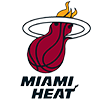
Winslow has shown that he is already a well-above average defender, but I didn't rank him third with the idea of him being a one-way player. He is third on the Heat behind Hassan Whiteside (1.6) and Chris Bosh (1.2) with 0.8 defensive win shares, but he is last on the team at minus-0.3 offensive win shares through 20 games. Back on Nov. 1 he covered James Harden for much of the matchup against Houston, holding the MVP runner-up to 16 points on two of 15 shooting.
However, there has been no such offensive performance so far from Winslow. His best game was probably Nov. 6 against the Pacers when he scored 13 points, which remains a career high, on six of 10 shooting with eight rebounds, one assist and zero turnovers in 31 minutes. That was a fine performance, but not necessarily a game for the rest of the league to take notice of.
His ceiling was never on par with those of Towns, Russell or Porzingis, so this should not be alarming. But it does show just how far he has to go to be even an average offensive two guard. That said, the selling point was always Winslow's high floor, which remains high, as he is already one of the best defensive two guards in the league.
First Quarter Grade: C+
Frank Kaminsky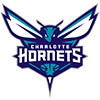
Frank the Tank had one of the most unique lines Wednesday for player of his size and skill set, going for more rebounds (seven) and assists (six) than points (five), despite playing 29 minutes. His rebounding, and specifically his passing, were not the main reasons I was high on him prior to the draft. He has a unique offensive skill set, with the ability to put the ball on the deck in the halfcourt, despite being seven feet tall, while also being an excellent three-point shooter, which is was why I thought he belonged as a top-10 pick.
Through 20 games, however, the only skill that has really shone has been his long-distance stroke. He is shooting 39.4 percent from three, while shooting just 42.4 percent on two-pointers. It's possible that he will regress on his three-point shooting if defenses were not respecting his shot early on, but that would have been pretty poor scouting if teams were indeed daring Kaminsky to shoot from behind the arc. More likely, his percentages will all trend up as the season progresses and he becomes more comfortable in the offense.
First Quarter Grade: C
Devin Booker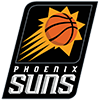
It is incredibly early in his career, but Booker is already showing why he has a chance to be one of the game's best three-point shooters. More than with the first three players profiled here, Booker has been a major victim of limited playing time. For this reason, it is hard to really evaluate his season to date. However, it is still impossible to not point out that he has hit 15 of his 21 three-point attempts (71.4 percent) through 19 games. Three-point shooting is two thirds of Booker's package as a prospect - the thing his NBA success will hinge on.
He leads the Suns in true shooting percentage at 64.5 percent, and Mirza Teletovic is second at 60.2 percent, so hopefully head coach Jeff Hornacek at least gives Booker a chance to prove he belongs as a 25 minute-per-game guy on a team without championship hopes. Obviously Booker will have to be competent at other things besides long-distance shooting, but he is a pretty good athlete and solid defender, so there is no reason for him to not be able to carve out a Kyle Korver-esque career if he puts in the time.
First Quarter Grade: B









